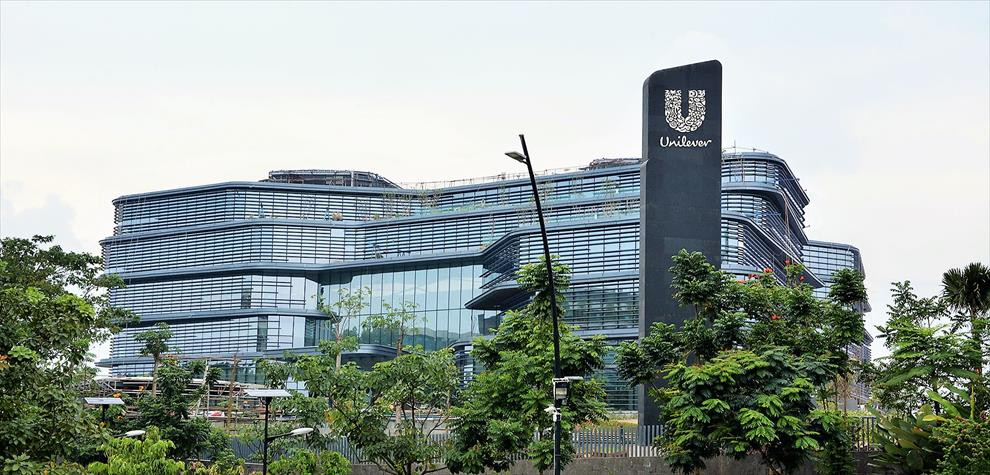Popular Reads
Top Results
Can't find what you're looking for?
View all search resultsPopular Reads
Top Results
Can't find what you're looking for?
View all search resultsUnilever profit falls as sales flatten in Q3
Unilever recorded a 1.29 percent year-on-year drop in net profit to Rp 5.44 trillion (US$370.3 million) as of Sept. 30 while its sales grew by only 0.3 percent yoy to Rp 32.46 trillion during the period.
Change text size
Gift Premium Articles
to Anyone
C
onsumer goods giant PT Unilever Indonesia has seen its net profit contract in the third quarter as weak purchasing power hits sales.
The publicly listed company recorded a 1.29 percent year-on-year (yoy) drop in net profit to Rp 5.44 trillion (US$370.3 million) as of Sept. 30 while its sales grew by only 0.3 percent yoy to Rp 32.46 trillion during the period.
“The [sales] growth is supported by an increase in health and hygiene products, in line with rising health awareness during the pandemic,” Unilever said in a statement on Thursday.
Sales of its home and personal care lines grew 2.2 percent yoy as of the end of the third quarter. However, its food and refreshment line’s sales fell 3.54 percent yoy.
The company attributed the drop in its food and refreshment line to declining sales at its business-to-business (B2B) unit Unilever Food Solutions (UFS), which caters to hotels and restaurants, despite the easing of restrictions in several regions.
The firm, however, did not go into detail on the decline in UFS unit sales.
Unilever, which owns soap brand Lifebuoy, Dove shampoo and Magnum ice cream, among others, also failed to keep its expenses at bay as it recorded a 7.97 percent yoy rise in marketing and selling expenses, while its general and administration expenses rose 13.02 percent yoy as of September.
“Even though it’s hard to predict how long this pandemic will last, our priority is to continuously and persistently build competitiveness during these challenging times,” Unilever president director Hemant Bakshi said in the statement.
Such an effort is shown by the company’s launch of several products, including disinfectant laundry products as well as smaller packs of its ice cream and soaps, as a way to adapt to challenging purchasing power during the pandemic.
“The company’s commitment and optimism remain strong in this prolonged pandemic,” Bakshi stated. “By building competitiveness across categories and channels, we’re sure that we are on the right track to win today and in the future.”
Other than signaling weaker purchasing power, Unilever’s flat sales in the first nine months of the year also showed the company’s limited price maneuvers in adapting to the situation, Samuel Sekuritas analyst Suria Dharma said.
As Unilever leads the consumer goods market in the country the company only has two options to improve sales: increase sales volume or raise selling prices, he said.
“Raising prices is usually not a problem due to customer loyalty,” Suria said. “But since people’s purchasing power has weakened, it’s hard for Unilever to raise its average selling price, thus impacting its sales growth.”
A recent outbreak in Unilever’s production facility also hampered the company’s production process, he said.
Unilever temporarily closed in July its tea-based beverages plant in the Cikarang industrial zone in Bekasi, West Java, after 21 workers were infected with the coronavirus in the facility.
Suria, however, lauded the company’s effort to innovate by launching new products.
He expected the company’s performance to remain flat due to the pandemic this year.
"We believe that Unilever will continue to show its resiliency amid the pandemic, though recovery might be slower than expected," Sucor Sekuritas analyst Jennifer Widjaja wrote in a research note on Monday, expecting tepid earnings growth of 0.9 percent yoy for Unilever this year but a speedier recovery next year and in 2022.
Unilever’s shares, traded on the Indonesia Stock Exchange (IDX) under the code UNVR, dropped 0.32 percent as of 10:51 a.m. Jakarta time on Monday as the main gauge, the Jakarta Composite Index (JCI), gained 0.49 percent. Unilever has lost 6.25 percent of its stock value so far this year.










